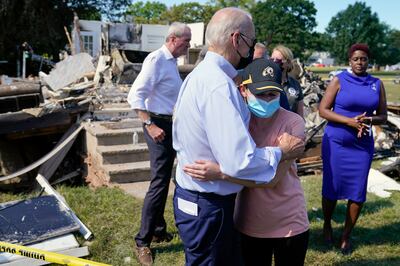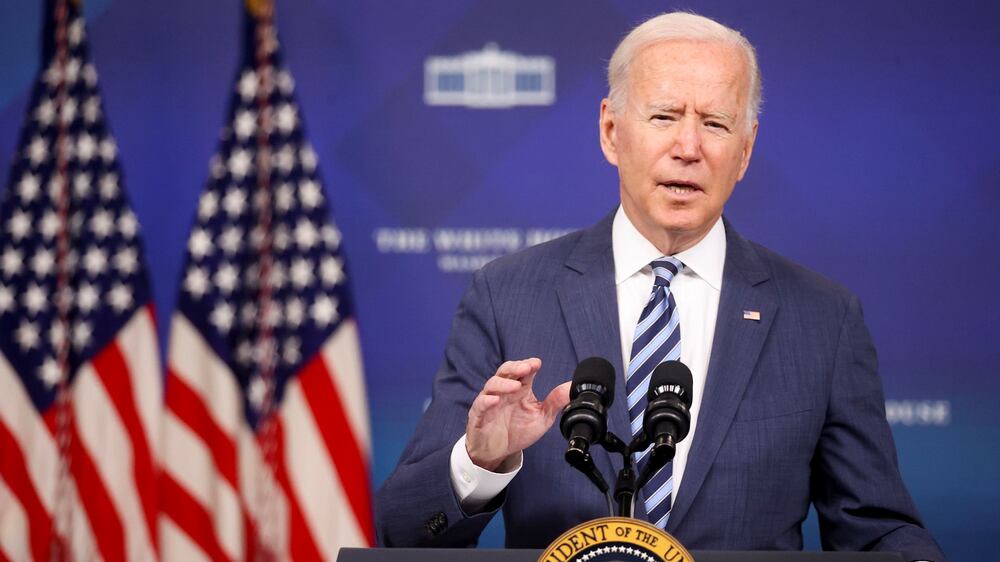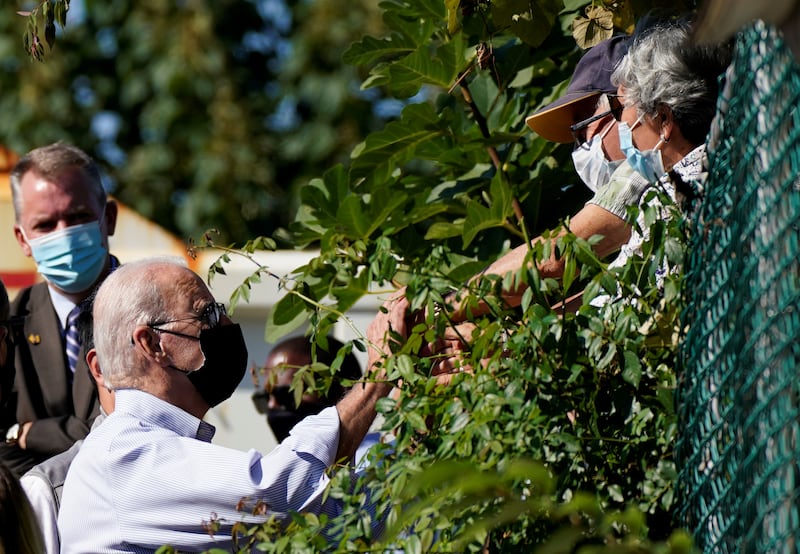President Joe Biden visited two north-east US states on Tuesday to survey the damage caused after Hurricane Ida brought tornadoes and extensive flooding last week.
Speaking in the Queens borough of New York City, Mr Biden pointed to climate change for the recent extreme weather events and called for action.
Scientists, he said, have warned that events like these are a "code red."
"The nation and the world are in peril, and that's not hyperbole," Mr Biden said.
Mr Biden also noted the recent wildfires in the western US have burned two million hectares this year.
“These disasters aren’t going to stop,” he said. “They’re only going to come with more frequency and ferocity.”
The president used the backdrop to push for his infrastructure bill, which he says will build more resilient communities that would not suffer comparable damage if they are struck by another extreme weather event.
Mr Biden's remarks came after he visited New Jersey, where he spoke with Governor Phil Murphy and local officials.
“Every part of the country, every part of the country is getting hit by extreme weather,” Mr Biden said at the briefing, noting that scientists have warned of this for decades.
Mr Biden said the threat from wildfires, hurricanes, tornadoes, flooding and other extreme weather must be dealt with in ways that will lessen the devastating effects of climate change.
“We can’t turn it back very much, but we can prevent it from getting worse,” he said. "We don't have any more time."

The White House on Tuesday asked Congress for billions of dollars in emergency funds to cover costs associated with recent hurricanes in addition to the wildfires in the western US and resettlement of Afghan refugees.
White House Acting Budget Director Shalanda Young said the Biden administration is seeking $14 billion for disasters that struck the US before Ida, while Ida itself is estimated to require at least $10bn. Officials said the White House expects to provide the detailed funding request for Ida in the coming weeks.
The president on Tuesday morning previewed his call for an increase in federal spending on infrastructure.
“I’m hoping to see the things that we’re going to be able to fix permanently with the bill that we have in for infrastructure,” Mr Biden said on Tuesday as he departed the White House.
At least 50 people were killed in the US north-east due to the flooding, including 27 in New Jersey and 13 in New York.
Some people were trapped in fast-filling basement apartments and cars, or were swept away as they tried to escape.
Both Mr Murphy and New York City Mayor Bill de Blasio spent part of Monday touring damaged communities.
In a televised address last week, Mr Biden pledged robust help for the north-east and Gulf Coast regions, saying extreme events like Ida are a reminder that the climate crisis is real.
Joe Biden addresses US after Hurricane Ida wreaks havoc

“These extreme storms, and the climate crisis, are here,” Mr Biden said. “We must be better prepared. We need to act.”
Mr Biden's visit comes days after his tour of Louisiana, where he pitched his plan to spend $1 trillion on modernising roads, bridges, sewers and drainage systems and other infrastructure.
“Hurricane Ida is another reminder that we need to be prepared for the next hurricane and superstorms that are going to come, and they’re going to come more frequently and more ferociously,” Mr Biden said on Friday.
Mr Biden has approved major disaster declarations, making federal aid available for people in six New Jersey counties and five New York counties affected by the devastating floods.
Ida was the fifth-most powerful storm to hit the US when it made landfall in Louisiana on August 29.







